You’re looking for a relaxing, sunny vacation in the Caribbean, and you’ve decided that Antigua’s 365 beaches are ideal for that. However, you first want to make sure how safe Antigua is for travel.
The short answer to the question is: Antigua is generally safe for travel, as long as you adhere to some common-sense practices, follow our advice, and stay away from the island’s problematic neighborhoods. In any case, most tourists have the time of their life in Antigua, without experiencing any trouble.
But, to get the safety situation in Antigua completely out in the open, we are offering you a comprehensive, in-depth guide to all the potential safety concerns on the island — including crime stats, police presence, COVID-19 protocols, natural disaster conditions, and more.
Are you planning a last minute trip to Antigua? We’ve put together all the resources you’ll need for a fun & safe travel:
🛌 Best & Safest Places to Stay in Antigua:
👉 Carlisle Bay – Spa and wellness centre, Airport shuttle (free), Fitness centre
👉 South Point Antigua – Room service, Restaurant, Private beach area
👉 Gunpowder House & Suites – Airport shuttle, Free WiFi, Room service
👉 The Inn at English Harbour – Fitness centre, Free WiFi, Outdoor swimming pool
⛱️ Fun Activities & Tours in Antigua:
👉 Adventure Antigua – The Xtreme Circumnavigation
👉 Night Kayaking with Liquid Glow
👉 E-Bike Tour of Antigua Forts and Beaches
🚗 Best & Safest Antigua Transportation Services:
👉 Airport Pickup Service – Welcome Pickups
👉 Rent a Car – DiscoverCars
🙏 Stay Safe While Travelling:
👉 Safetywing (for medical insurance)
👉 VisitorsCoverage (for trip insurance)
A Comprehensive Look at Antigua Crime Rates
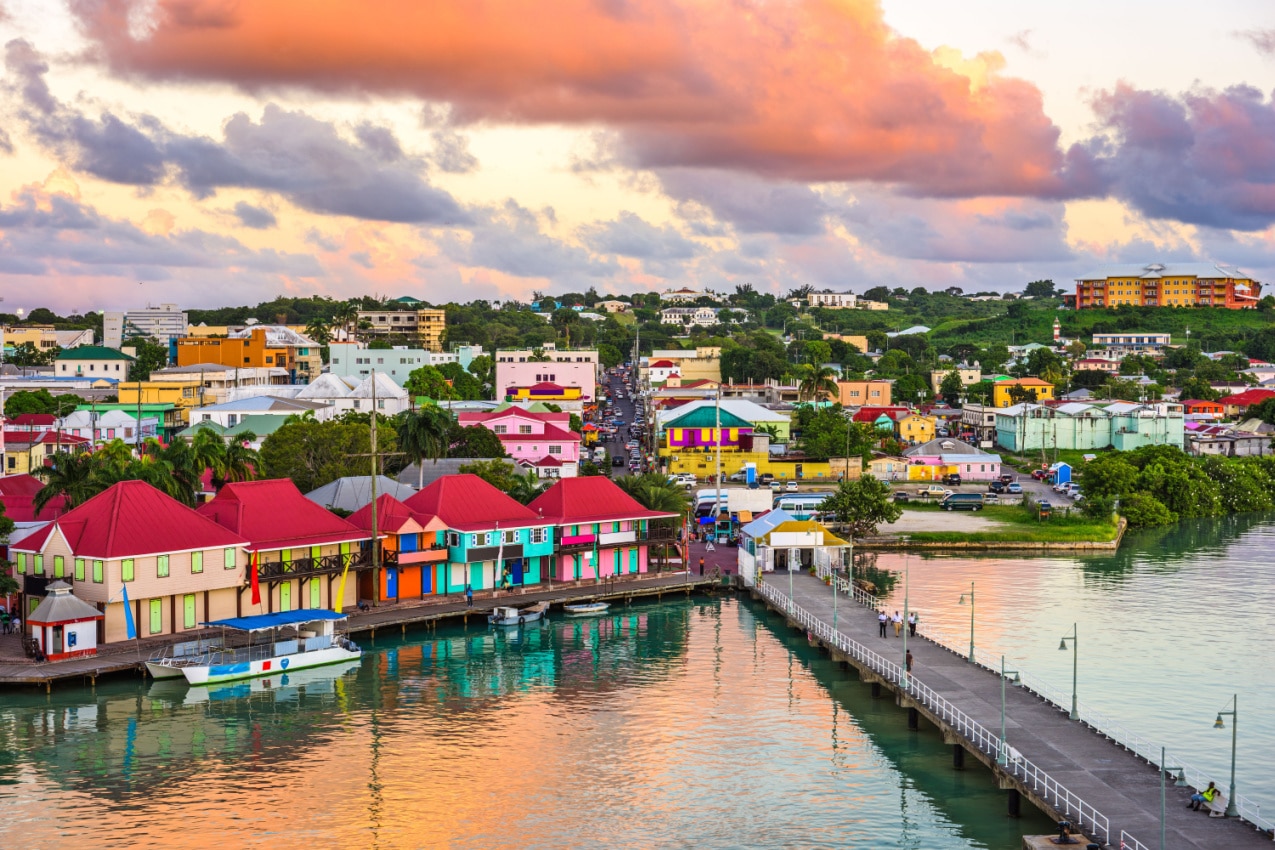
According to Numbeo, the crime index in Antigua is 70.83, which is pretty high.
According to the website’s statistical index, Antigua belongs to the fourth of the five total categories ranked in ascending order. So its crime index is just between “moderate” and “very high.”.
Don’t worry though – the coefficient isn’t high because of violent crimes, but mostly due to the prevalence of property crimes.
| Crimes Against Person | 2021 |
| Homicide | 16 |
| Homicide by Weapon | 3 |
| Private Car Theft | 8 |
| Burglary | 43 |
| Assault | 8 |
| Robbery | 88 |
What Governments Are Saying About Crime in Antigua
The data on Numbeo is quite shocking, but the picture of a crime-filled Antigua that it paints starts to dwindle a bit when we compare those ratings with the advice given by international travel advisories.
The US State Department advises travelers to Antigua not to worry, ranking this Caribbean island under the Level 1 category, “Exercise Normal Precautions.” That basically means that there aren’t any serious threats to your life and your well-being while traveling in Antigua.
Similarly, the Canadian Government advises travelers to Antigua to “take normal security precautions” and that there’s no cause to worry about their life and health.
Of course, you shouldn’t bypass the standard safety precautions:
- Don’t leave your belongings unattended (especially on the beach)
- Avoid taking long walks at night while under the influence of alcohol
- Don’t flaunt your belongings in public.
The Most Dangerous Areas in Antigua
Rather, unfortunately, Antigua’s crime is on the rise because of small street gangs, however, most tourists never come across them.
Their violent disputes occur in parts of Antigua that aren’t attractive to tourists. But just to make sure, avoid going to:
- Redcliffe Quay
- Market Street
- Heritage Quay
Police Presence in Antigua
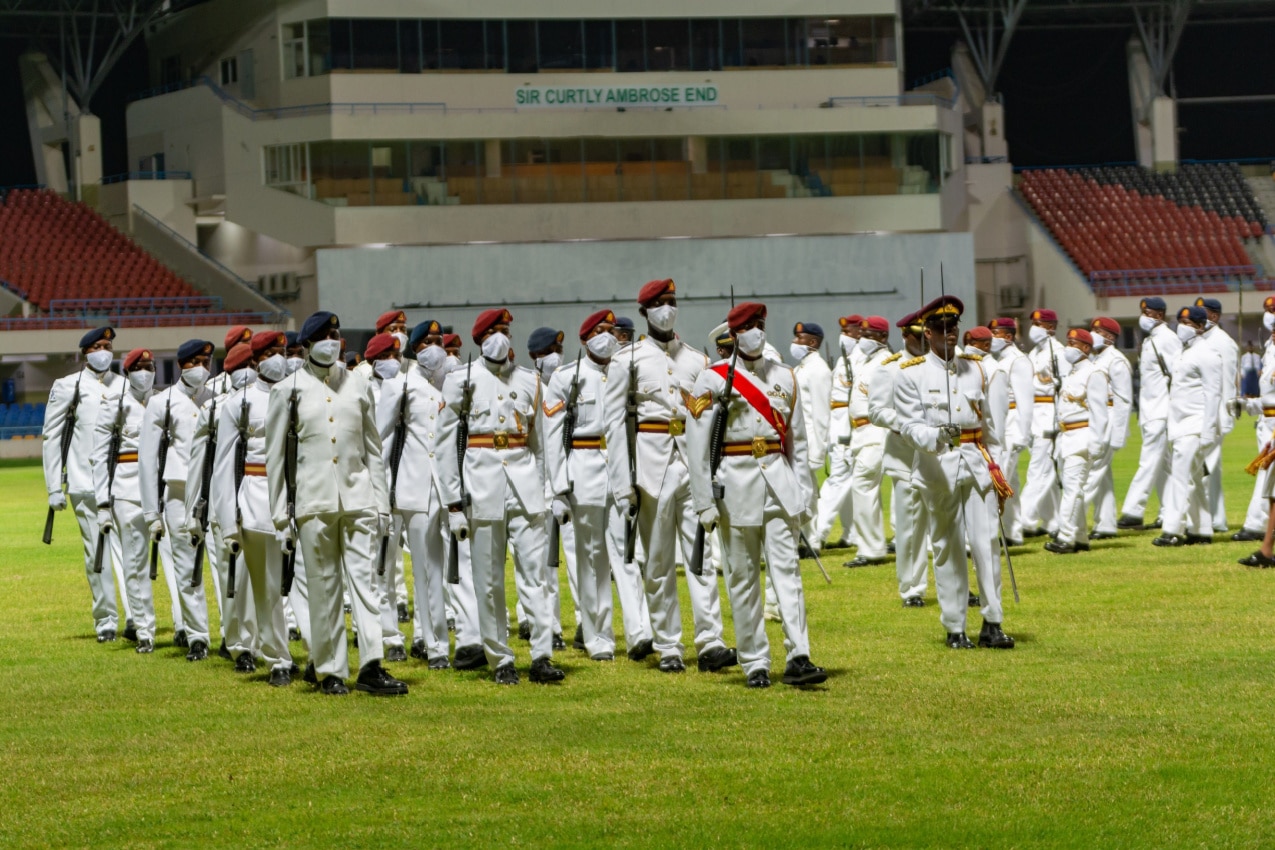
Antigua is protected by the Royal Police Force of Antigua and Barbuda, which covers both islands of this dual-island nation.
The police has a large staff — in relation to the small territory of the islands — of 750 administrators, of which 350 are active officers. There are also 185 additional officers available, who are part of the Antigua and Barbuda Defence Force, a military division.
As both Antigua and Barbuda are in the middle of a major drug trafficking ring, they are supported by INTERPOL NCB, located in Saint John. They mostly deal with drugs and arms trafficking and other kinds of organized crime that threatens the stability and safety of Antigua.
COVID-19 Safety Protocols in Antigua
Antigua is both safe and open for travel when it comes to COVID-19.
You don’t need a vaccine for COVID-19 to enter the country, nor are there any quarantines or special protocols. All the restaurants are open, and public transport is fully functioning. Wearing safety masks — especially in crowds — is recommended, but it’s not mandatory.
As of October 12, 2023, the country — Antigua and Barbuda — had had 9,106 people infected with the COVID-19 virus, 146 registered fatalities, and 8,954 recovered patients. The government organized an active and successful vaccination program, and they managed the health crises quite well.
Perils of Nature: The Risk of Natural Disasters in Antigua
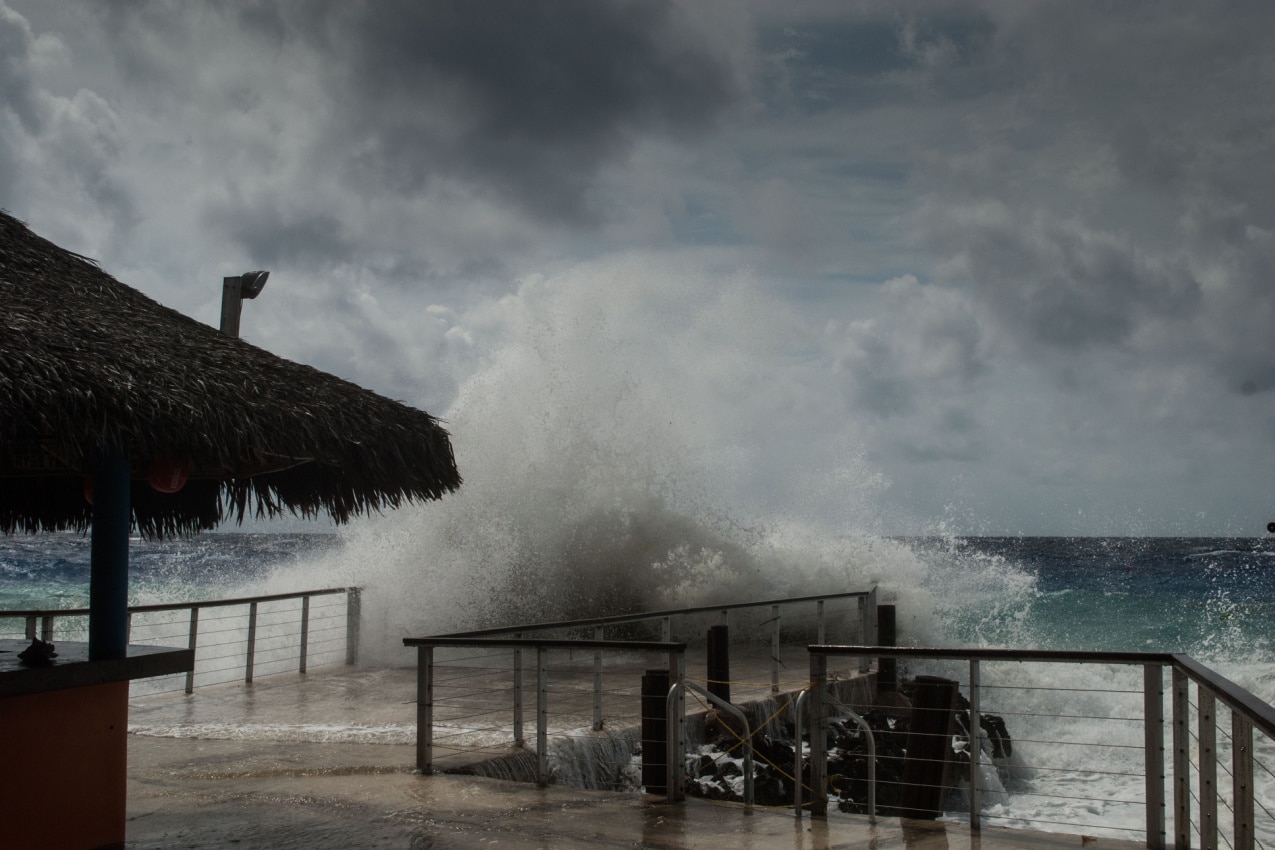
The only real natural threat to Antigua are those strong storms and cyclones that frequently attack the Caribbean Sea, also known as hurricanes. During the peak of the June–November hurricane season — between August and October — they can hit pretty hard, cause significant material damage, and pose a serious threat to human lives.
Hurricane Information
According to the Saffir–Simpson hurricane wind scale (SSHWS), which is used to classify hurricanes in the Atlantic and Pacific oceans, they’re divided into five main categories based on their strength and danger level:
- Category 1: Very dangerous winds that are sure to cause some damage, like breaking branches and damaging roofs.
- Category 2: Extremely dangerous winds that’ll probably cause extensive damage, like snapping shallow-rooted trees and extensive damages to houses.
- Category 3: Causes devastating damage, like toppling entire trees and blocking roads. Almost surely results in the loss of electricity and water in buildings.
- Category 4: Considered catastrophic because it causes enormous damage. It would cause affected areas to be uninhabitable for some months.
- Category 5: Can destroy entire cities, and are always accompanied by catastrophes, like destroyed homes, toppled trees, power outages, and uninhabitable areas.
Although hurricanes from higher categories are pretty rare, they do occur. In fact, there are some infamous instances from recent history. In 2017, Hurricane Irma — one of the most destructive and dangerous natural disasters in the past years — did considerable damage to almost every island in the Caribbean. Hurricane Irma was registered as a Category 5 storm that caused catastrophic damage.
Although Antigua was not its prime target, the neighboring island of Barbuda was hit hard. Almost 95% of the buildings on the island were damaged or destroyed, and around 1,800 people were evacuated to the safety of Antigua. According to an estimate made by Time magazine, the hurricane caused damage that cost the community around 100 million US dollars.
Hurricane Precautions
Antigua and its wider area experience one or two hurricanes per year, almost exclusively from the lower categories. But, although neither deadly nor catastrophic, they can be quite dangerous and scary, especially for tourists who’ve never encountered such storms before.
The best thing you can do in case of a hurricane crisis is to follow the government’s official protocols and to follow the advice of the locals. They know how to react, as they’re quite experienced and know the drill.
If you do visit Antigua during hurricane season, follow the monthly, weekly, and daily weather forecasts and be prepared for the worst, even when the weather is nice and sunny.
Some Useful Tips in Case of a Big Storm or a Hurricane
The Australian government’s website offers some of the following game-changing tips:
- Gather as much information as you can: learn all you can about the designated safe areas and path to the emergency evacuation center or centers in the city or village.
- Decide whether to stay where you are or move to another area: it’s always best to follow the advice of the official authorities.
- Before you get to the evacuation center or the designated safe house make sure to pack all your emergency supplies.
- Let your friends, loved ones, or family know what’s happening: give clear and precise information about your situation, what you are planning to do, and where are planning to stay.
- During the storm, stay inside the designated area, listen to the authorities, and follow up with official updates regarding the situation.
Breathing Safely in Antigua: Carbon Monoxide Awareness and Prevention
Carbon monoxide is a well-known toxic gas. Every year, it claims the lives of around 420 people in the US.
One of the main reasons for such a high number of casualties is the insidious nature of the gas. It’s odorless, tasteless, and invisible, which makes it very hard to detect. It’s especially dangerous in small rooms, without proper air circulation. In most cases, the only real way for you to notice that there is a carbon monoxide saturation in the area is to observe the symptoms.
The most common symptoms of CO poisoning are strong headaches, dizziness, stomach ache, chest pain, and vomiting. The consequences can be quite severe: paralysis, brain damage, and even loss of life.
Luckily for every traveler to Antigua, there are no reported cases of poisoning by carbon monoxide. But, you should still be careful. In 2012, in the famous Sandals resort in the nearby Bahamas, three people lost their lives as a consequence of carbon monoxide poisoning.
In case you wondered – after the unfortunate accident, the resort installed carbon monoxide detectors in the most critical spaces. We can only hope that other hotels and resorts will follow suit.
Antigua Weather Patterns: What to Expect
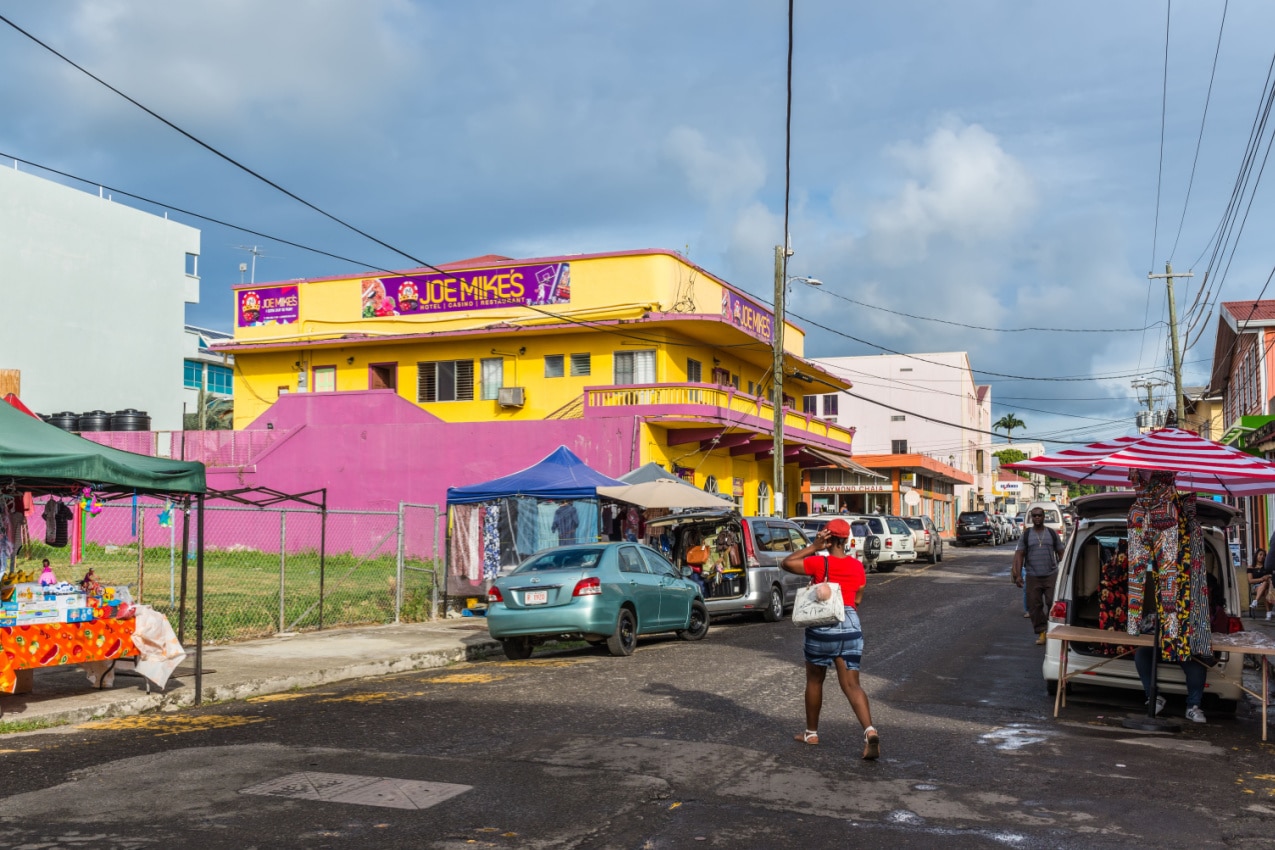
The climate in Antigua is tropical, which means sunny, warm weather throughout the year. That also means that the traditional division between spring, summer, autumn, and winter is not as strict as in continental countries. Namely, there are basically two seasons in Antigua and the nearby Caribbean islands: the rainy season and the dry season.
But, because of the fact that most of the tourists come to Antigua from countries with regular climates and four seasons, we are going to give you a quick summary of the weather patterns on the islands, in terms of the familiar four-season year.
Spring
Spring in Antigua is mostly sunny and dry because it’s a part of the tropical dry season. The temperatures are 28°C and 30°C (82°F and 86°F), with a slight breeze and almost no rain. If you prefer dry, hot weather and a lot of sunbathing on the beach, this is the right time to visit Antigua.
Summer
Summer in Antigua is even hotter than spring, with temperatures reaching 31°C (87°F). However, the weather is also more humid and rain falls more frequently. Summer is usually the beginning of the season of strong storms and hurricanes. Simply put, the tropical rain season takes hold of the island.
Autumn
Autumn is definitely the worst season in Antigua. There’s rain almost every day and the hurricane season reaches its peak in October and November. The tropical rain season takes complete control of the island. The temperature is still high (between 29°C and 31°C or 84° and 87°F), but the winds are strong, and the storms frequent. Despite all that, it’s sunny for seven or eight hours a day on average.
Winter
Winter is both the coldest and the driest season in Antigua and hence the most popular with European and American tourists. The temperature is still high enough — on average, around 28°C (82°F) — and there’s hardly any rain.
You can check our guide on the best and worst times to visit Antigua for more details on what to expect during different months on this island.
How to Stay Safe in Antigua
The only two real threats to safety in Antigua — at least for tourists — are thefts and robberies. Most of them happen during the night, in dark places and forlorn areas, but also in unattended cars, or on the beach while you are swimming.
So, to stay safe:
- Keep your things close to you or in a hotel safe.
- Don’t flaunt your belongings, especially jewelry, technology, or other expensive or luxurious-looking stuff.
- Stay out of dark areas and deserted streets.
- Don’t take money out of an ATM during the night.
- Travel in groups as much as you can, both day and night, but especially after sunset.
- Stay away from buses as much as you can: the buses in Antigua are famously unreliable and are usually not recommended for tourists.
- Use only the services of licensed and authorized taxi companies: if you’re looking for a taxi, ask the receptionist or the employees in the establishment (shop, restaurant) to call a cab for you.
- Be careful with the people who sell stuff or offer services throughout the city and on the beach. Before you accept anything — be it a massage or hair braiding — make sure to get a clear deal on the price.
- Finally, stay away from manchineel trees. They’re highly poisonous and very dangerous. Touching its sap or bark, or the inside of its fruit, may cause serious rashes, blindness or even be fatal.
Is It Safe to Visit Antigua Solo or With a Family?
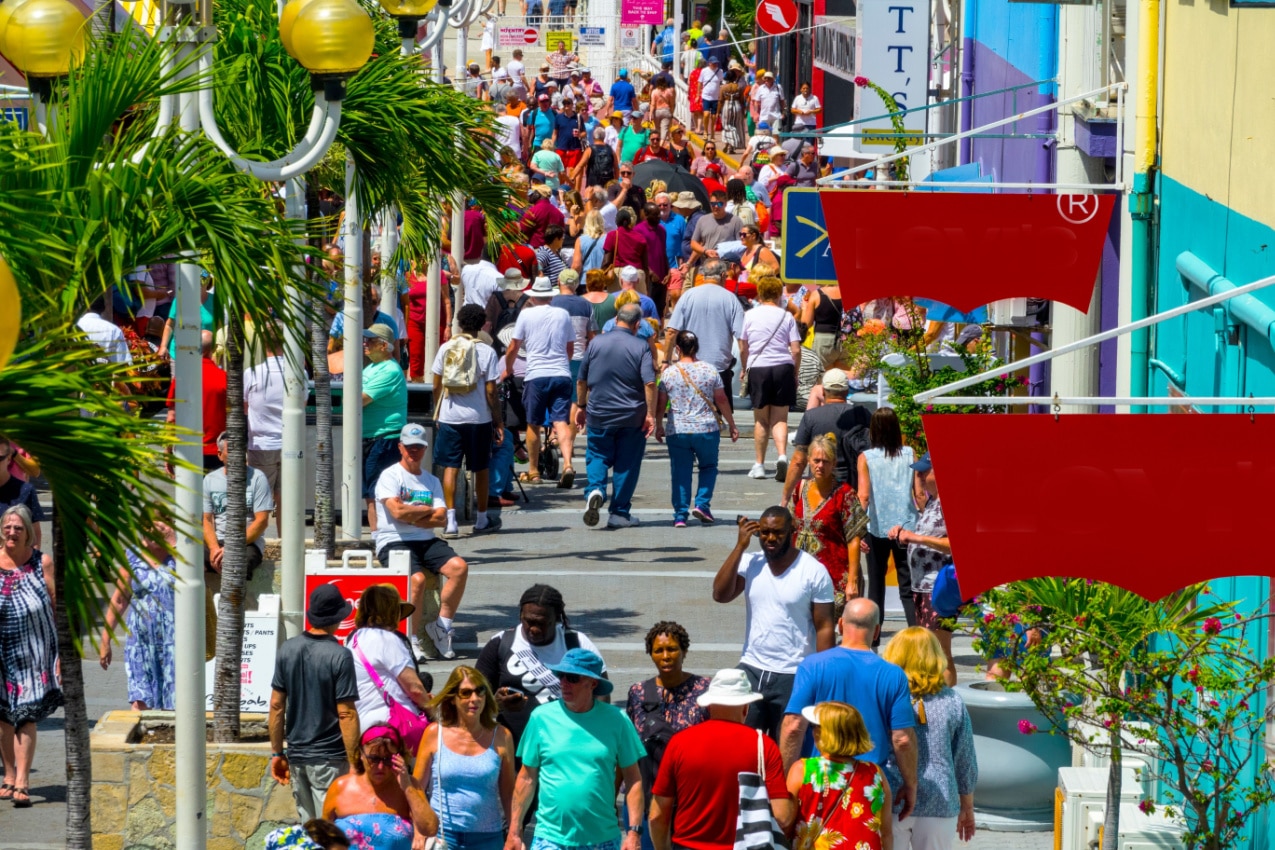
Antigua is safe both for solo travelers and for families, as long as you follow some common-sense rules and stay away from the problematic and dangerous areas of the island. But there are also some additional tips that will help you stay safe in Antigua.
Tips for traveling alone
- Stay away from dangerous areas, deserted streets, or suspicious corners.
- Don’t drink too much alcohol. You are at your weakest and most vulnerable when you get drunk – particularly when you leave the bar after a night out and head to the hotel.
- Don’t do narcotics: the biggest problem in Antigua is drug trafficking and the police are mostly active in that domain. Also, drugs involve the dangerous street gangs that roam the city.
- Be polite and considerate with the locals as they’re your best contact with the mores and customs of the island, and the people who are most likely to help you if you run into some sort of problem.
Tips for traveling with your family
Although families traveling to Antigua don’t face any particular dangers, here are some common-sense tips that will definitely make it easier to keep your family safe:
- Keep an eye on your children at all times. Stay as a group as much as you can and don’t let them roam the streets or the beaches on their own.
- Bring a first-aid kit and carry it with you at all times. The sun shines strong in Antigua, and sunburns are something that happens to almost every visitor on the island — especially to children.
- Stay out of public transportation, especially buses and unauthorized taxi cabs. Rent a car if you can, or use only the authorized taxi services recommended to you by the locals or the employees at the hotel or resort you’re staying in.
Safe travels!
Antigua is a gorgeous and generally safe holiday destination. Although it’s not the safest of the Caribbean islands, it’s still a reliable option for both solo and family vacations.
Although the crime rates may cause some concerns, most governments encourage their citizens to visit Antigua and Barbuda and take the safety precautions they’d take in their own countries. Simply put, crime in Antigua is concentrated in a few neighborhoods that are dominated by drug-trafficking street gangs, but those are not usually frequented by tourists, anyway.
The only other problem is the hurricanes, but if you don’t visit Antigua during the hurricane season, you’re safe!
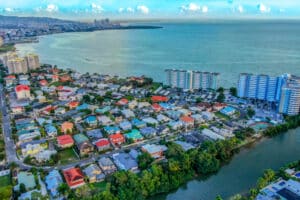
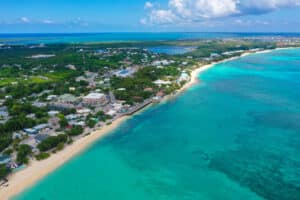
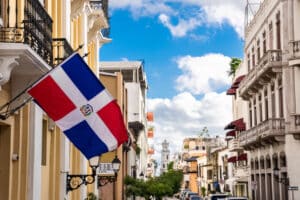
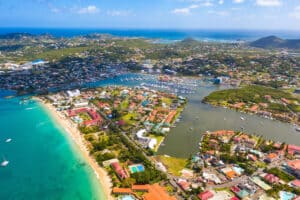
The pictures shown are of Antigua in Guatemala not of Antigua in the Leeward Islands
Thank you, Dale, appreciate your pointing this out to us. We corrected the pictures we’re using now.
We visit in 2023 and had our rental car stolen. Luckily we gotten the insurance but still had to come out of pocket. A local person told us that’s is the newest scam. A guy at the rental office have a friend take the vehicle so they can report it stolen and the American have to pay the deductible.
We visit in 2023 and had our rental car stolen. Luckily we gotten the insurance but still had to come out of pocket. A local person told us that’s is the newest scam. A guy at the rental office have a friend take the vehicle so they can report it stolen and the American have to pay the deductible.
Susan where did you grow up. Just curious. At any point in time have you lived in a city where 16 people got killed for the whole year. St Thomas USVI is half the size of Antigua google its homicide rate. But as an Antiguan I totally agree 16 is way too high . But I can tell you unequivocally I live in Washington DC . Antigua is safe 🤨
Thank you for reading, Jomo, and your feedback.